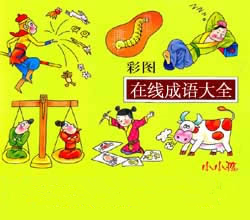英文读后感-《汤姆索亚历险记》读后感
I believe that one of the factors that makes a piece of literature or even a movie a masterpiece is how well the reader can relate to the story. This is definitely a book everyone can relate to.
The Adventures of Tom Sawyer is a literary masterpieces, written in 1876 by the famous author Mark Twain. Tom Sawyer is a mischievous young boy who lives in the small town on the Mississippi River called St. Petersburg. The story line is simple, the book reads like a biography or a memoir of a summer in Tom Sawyer's life.
Tom Sawyer seems to be the precursor of and the template for misfit kids such as Dennis the Menace, Malcolm in the Middle, and Calvin and Hobbs. What makes this story great is that Tom Sawyer represents everything that is great about childhood. The book is filled with Tom's adventures playing pirates and war with his friend Joe Harper. Tom has a trusted friend, Huck Finn, who few of the adults approve of. The book is filled with ideas of how the world works, such as how pirates and robbers work, that are so innocent, they could only come from a child. It is a story filled with action, adventure, ingenious ideas, love, and schoolyard politics. The whole story is seemingly a complication of what people did or wish they did during their childhood.
The book is a little difficult to read at first. Personally, it takes me a little while to get used to the 19th century dialect in the book. Other than referring to persons of African decent in derogatory terms (which I'm sure uses terms even young children already know), the book would be an enjoyable read for people of all ages. I highly recommend this book for anyone looking to feel young again, if just for a few hundred pages.
相关作文: 可爱的豆芽、暴风雨来临之前、我长大了作文100字、收获的一天、我的眼镜、给小狗拍照、帮助别人快乐自己、一片菊花、记一件小事、互相帮助热门作文成语素材
- 哀感顽艳 原意是指内容凄切,文辞华丽,使愚笨和聪慧的人同样受感动。后多用来指艳情的小说、戏曲、电影中的感人情节。
- 匪夷所思 匪:不是;夷:平常。指言谈行动离奇古怪,不是一般人根据常情所能想象的。
- 爱素好古 指爱好朴质,不趋时尚。
- 分我杯羹 羹:肉汁。楚、汉相争时,刘邦答项羽的话。比喻从别人那里分享一分利益。
- 风不鸣条 和风轻拂,树枝不发出声响。比喻社会安定。
- 匪夷匪惠 夷:殷末周初的伯夷;惠:春秋时鲁国的柳下惠。既不是伯夷,又不是柳下惠;不具备这两位贤人的品德。形容才德不高而又驾驭的人。
- 分茅裂土 原指古代帝王分封诸侯时举行的仪式。后称分封诸侯。
- 安分知足 安于本分,对自己所得到的待遇知道满足。
- 百废俱兴 俱:全,都。许多已经荒废了的事情一下子都兴办起来。
- 百战不殆 经历许多次战役,都没有遭到危险。形容善于用兵。
- 分毫不爽 比喻没有丝毫差错。
- 并驾齐驱 并驾:几匹马并排拉着一辆车;齐驱:一齐快跑。并排套着的几匹马一齐快跑。比喻彼此的力量或才能不分高下。
- 肥马轻裘 裘:皮衣。骑肥壮的马,穿轻暖的皮衣。形容阔绰。
- 不拔之志 比喻意志坚决,不可动摇。
- 不辨真伪 辨:分辨。伪:虚假。无法辨别真的和假的。
